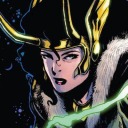Thusspokejade - Jade
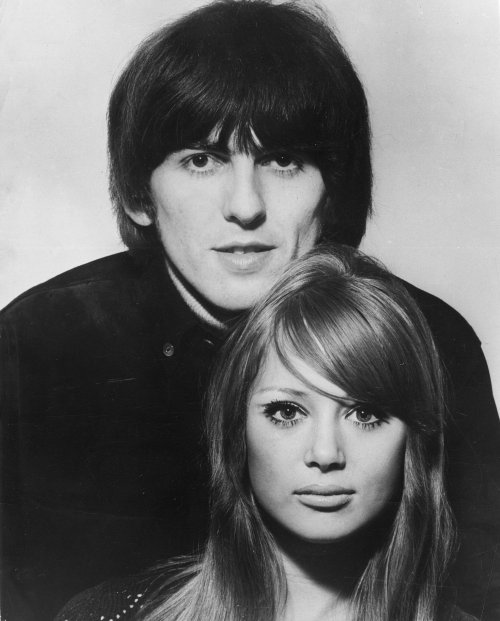
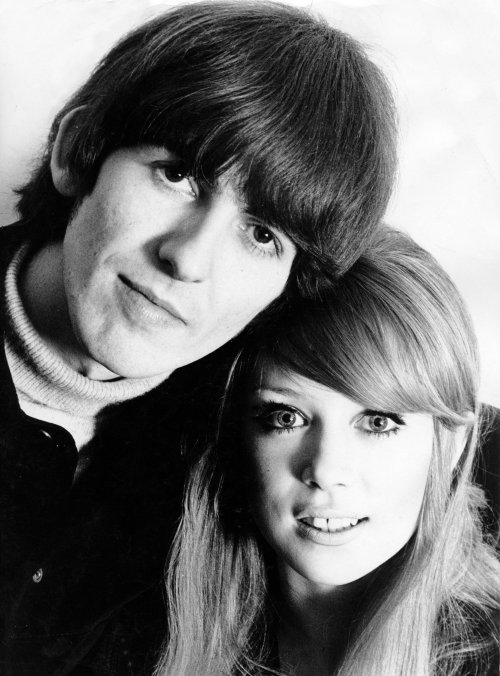
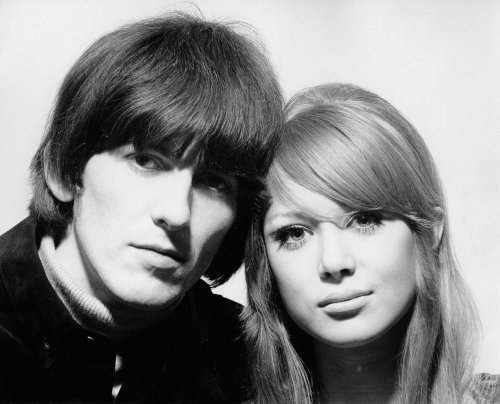
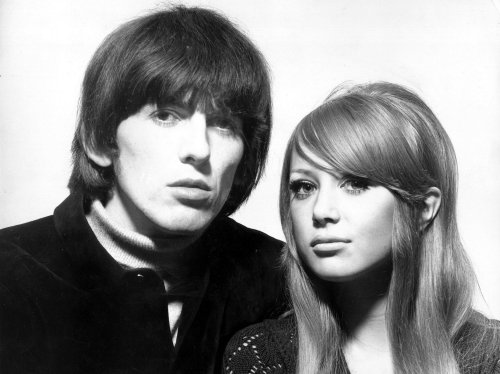
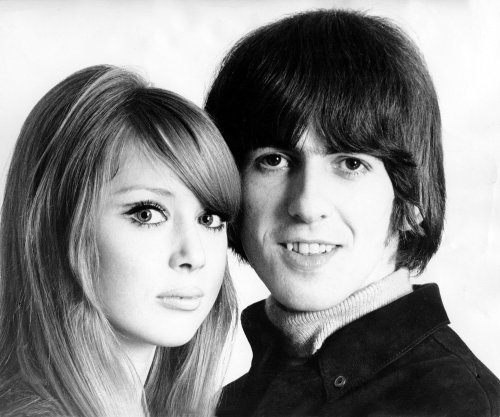
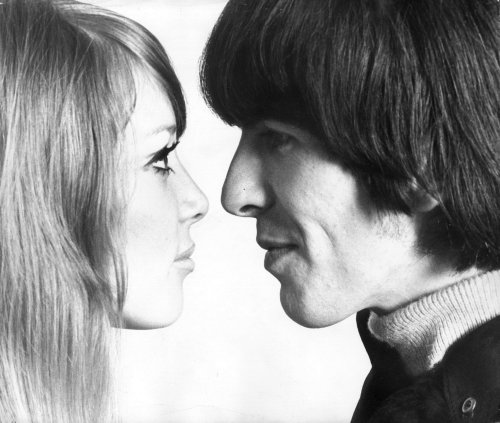
More Posts from Thusspokejade and Others
Sometimes i think about george waiting for a signal of approval from bob when the beatles showed revolver to him and i always feel so sick
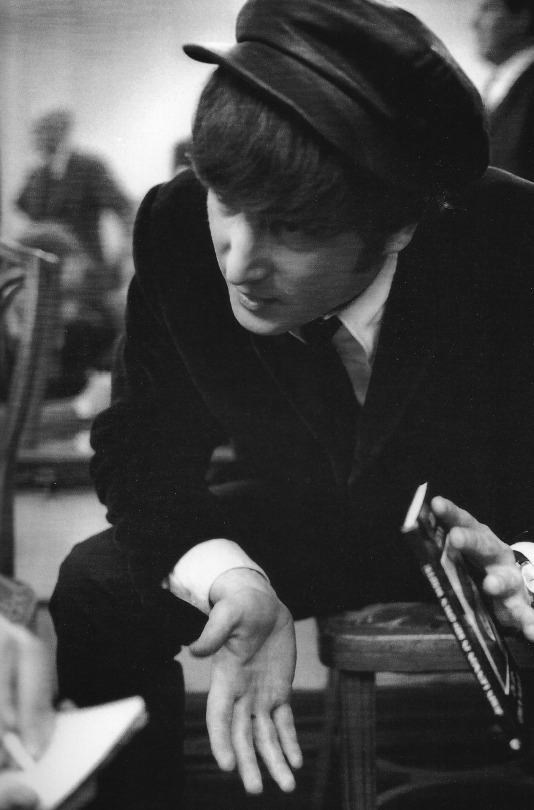
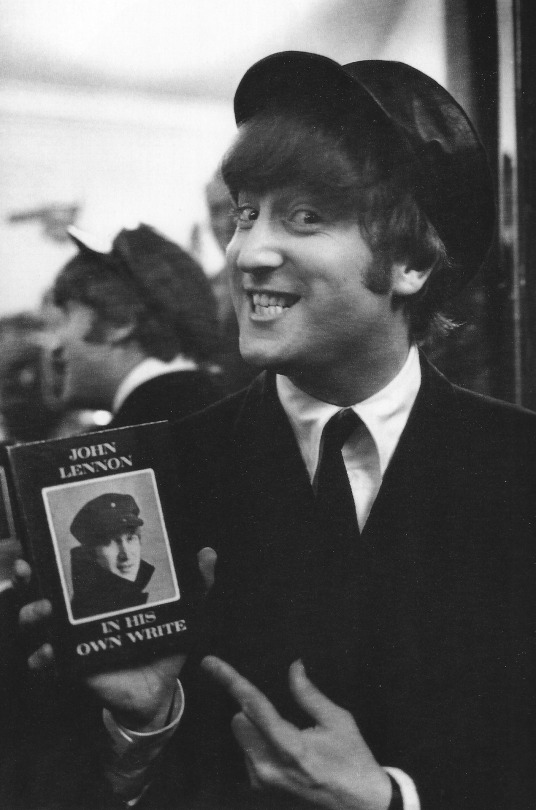
George Harrison & Bob Dylan “If Not For You” Concert For Bangladesh rehearsal, July 31, 1971.


George Harrison and welsh singer Mary Hopkin - cca 1969


George Harrison at the SAS Royal Hotel in Copenhagen, Denmark | June 1964 © Harry Benson

George Harrison remained an enigma to many people, even those who were close to him. For a man who lectured passionately about karma and the meaning of existence, he seemed self-protective and closed off. Witty when called upon, there were also moments when he could be quite boorish. Perhaps it was because he was only twenty years old when the Beatles became a global sensation. That might not seem particularly young in today’s world of social media fame, but at the time, it was uncharted territory for the kind of adulation he was experiencing.
It was also difficult living in the shadow of Paul and John. In the beginning, they were openly dismissive of him. Paul said he always thought of George as a little brother. At first, John pretended not to know his name and sardonically referred to him as “that kid’’. Ironically, one of George’s compositions, Something, became the most covered song in the Beatles catalogue.
This interview was conducted at George Harrison’s palatial home, Friar Park, in Henley-on-Thames, on November 5, 1980. George was gracious but cool. He made a pot of tea in the drafty, vast kitchen of his 120-room estate, and spent two hours lecturing about Transcendental Meditation and the details of a limited edition of his autobiography, I Me Mine, which is certainly how he must have felt getting out on his own.
In 2000, George was diagnosed with oropharyngeal cancer. George died on November 29, 2001, in the company of his wife, Olivia; his son, Dhani; musician Ravi Shankar; and Hare Krishna devotees who chanted verses from the Bhagavad Gita. He was 58 years old and left nearly $100 million in his will. George told Olivia that he didn’t want to be remembered for being a Beatle, he wanted to be remembered for being a good gardener.

‘It was a transcendental experience that was beyond the mind’
On taking LSD
LSD was just such a violent, big experience. Before it I was totally ignorant, and afterward I knew I was totally ignorant and I was now on my way to having some sort of knowledge. I related it to the childhood experience of Catholicism and going to church on a Sunday and seeing all that phoney baloney. The moment I’d taken LSD, it just made me laugh because I understood it inside, just in a flash. I understood what the whole concept of God or religion was just by seeing it. I could see it in the grass in the trees.
It was an absolute truth; like a light going ching. I took three very powerful trips — big, very important — and then it left me a bit unsure because I had to try and figure something out. By that time I had gotten into Indian music and spent time in India, [and] there was so much about it that felt like home to me. Not the surface that you see — all this poverty and the flies and the shit everywhere — [it] went beyond all that. Smells in the atmosphere and the people’s attitude and the music, the food, the religion, everything about it … home.
‘I’d hear his voice wailing at five in the morning’
On the death of Brian Jones of the Rolling Stones
I liked Brian a lot, and later on, I realised it was probably because we were both Pisces. We both had similar natures. He was also similar in that he had a Keith and a Mick, whereas I had a John and a Paul. We both had that problem of two mighty egos to deal with in order just to try and survive. I was very susceptible to dope, and Brian [Jones] was even more susceptible. He’d come [to my house], and I’d just hear his voice wailing at like five in the morning: “George, Geeooorrgggeeee.” So I’d wake up, see what was going on, and I’d look out the window, and he’d be all white and just shattered walking around the garden — just looking for somewhere to be.
I would always meet him at that time of day and just try to calm him down. And I saw him a lot before he died in that sort of circumstance. The last time I saw him, I think, was when I’d been in hospital to have my tonsils out and he came to see me in hospital and the next week he was gone. He was like all of them who kicked the bucket — it was sad because there were too many pressures, really. Not just the pressure of being famous and having the press hounding you day and night and young fans hounding you day and night. Plus the drugs hounding you day and night.
‘F*** it — I could do better than that’
On his childhood inspiration, Cliff Richard
I remember being a kid of about twelve, dreaming of big motorboats and tropical islands and things which had nothing to do with Liverpool, which was dark and cold. I remember going to see Cliff Richard and thinking, f*** it — I could do better than that.
‘I think being Elvis was lonelier than being one of the Fab Four’
On fame — and Elvis Presley
We kept realising we were getting bigger and bigger until we all realised we couldn’t go anywhere —you couldn’t pick up a paper or turn on a radio or TV without seeing yourself. I mean, it became too much. We became trapped, and that’s why it had to end, is what I think … We were like monkeys in a cage. I think it was helped a bit by the fact that it was four of us, who shared the experience. I mean, there was more than four of us, there was Peter Brown and Brian Epstein, but there was only four of us who were actually the Fab Four — whereas Elvis had an entourage and maybe 15 guys, friends of his, but there was only one man having that experience of what it was like to be Elvis Presley. I think that was far lonelier than being one of the Fab Four because at least we could keep each other laughing or crying or whatever we did to each other. It was definitely an asset being in a group.
(source)




The Beatles during the filming of Magical Mystery Tour | September 1967
In July [1971], the music press gave reports of the many people George was assembling for the concert. It was rumoured that his friend Dylan might even turn up, but Terry [Doran] told me George was having slight problems with Bob. Dylan had not performed for quite a while. Now George was asking him to make his 'comeback' in the hardest of all performing situations: at Madison Square Gardens with a bunch of musicians he had never played with before. One day during rehearsals, Dylan apparently got uptight and said he just couldn't do it; he was too nervous. George went wild: "You're nervous! What, are you crazy? I've never performed without the other three. At least you're used to performing on your own!" Dylan then explained that the concert was becoming a hassle. Again, George went wild. "I'm the one trying to put it together. All you have to do is sing!" Dylan walked out of the rehearsals. (He was not seen again by George, or anyone else, until the night of the concert. George didn't know if he was coming or not. So when the time allotted for Dylan came in the concert, live and on stage, George looked into the stage wings. There was Dylan, ready to come on. George still didn't know he was going to perform until Dylan started to stroll on stage. Dylan was a major hit, possibly the limelight of the show. It did Dylan good, too. He had regained his confidence and returned to the road for a tour shortly after the concert.)
Waiting for the Beatles: An Apple Scruff's Story, Carol Bedford (1984)
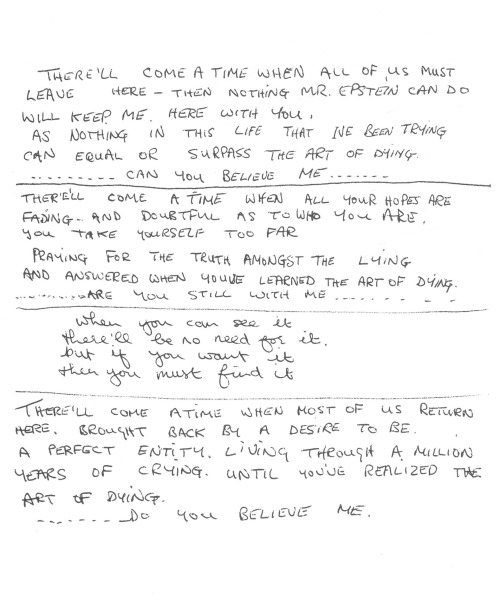
George Harrison’s handwritten lyrics for ‘Art of Dying’
‘Art Of Dying’ is believed to have been written by George Harrison in 1966, but was not recorded until 1970.
Harrison’s original handwritten lyrics reveal mentions of Brian Epstein. In the final version, released on Harrison’s 1970 triple album All Things Must Pass, ‘Mr Epstein’ was reborn as ‘Sister Mary.’










here’s more !!
I love my beautiful emo gf
-
 lennonroad liked this · 4 months ago
lennonroad liked this · 4 months ago -
 kaede-kazezawa liked this · 10 months ago
kaede-kazezawa liked this · 10 months ago -
 stinkyfartgirl liked this · 10 months ago
stinkyfartgirl liked this · 10 months ago -
 thusspokejade reblogged this · 1 year ago
thusspokejade reblogged this · 1 year ago -
 thusspokejade liked this · 1 year ago
thusspokejade liked this · 1 year ago -
 babysandwichcollectionposts liked this · 1 year ago
babysandwichcollectionposts liked this · 1 year ago -
 milexa2000 liked this · 1 year ago
milexa2000 liked this · 1 year ago -
 adele774 liked this · 2 years ago
adele774 liked this · 2 years ago -
 mikikieyway liked this · 2 years ago
mikikieyway liked this · 2 years ago -
 beatlesgirl1978 reblogged this · 2 years ago
beatlesgirl1978 reblogged this · 2 years ago -
 beatlesgirl1978 liked this · 2 years ago
beatlesgirl1978 liked this · 2 years ago -
 luvmacca liked this · 2 years ago
luvmacca liked this · 2 years ago -
 beatthemeat1es liked this · 2 years ago
beatthemeat1es liked this · 2 years ago -
 steampoweredjoan liked this · 2 years ago
steampoweredjoan liked this · 2 years ago -
 beatle-stories333 liked this · 2 years ago
beatle-stories333 liked this · 2 years ago -
 brrrackets-and-fangs reblogged this · 2 years ago
brrrackets-and-fangs reblogged this · 2 years ago -
 mallowedheart liked this · 2 years ago
mallowedheart liked this · 2 years ago -
 tristeninphea liked this · 2 years ago
tristeninphea liked this · 2 years ago -
 with-eyes-closed reblogged this · 2 years ago
with-eyes-closed reblogged this · 2 years ago -
 owlishgirl liked this · 2 years ago
owlishgirl liked this · 2 years ago -
 ihajames liked this · 2 years ago
ihajames liked this · 2 years ago -
 rhettybuns-and-linkypoo liked this · 3 years ago
rhettybuns-and-linkypoo liked this · 3 years ago -
 keanureevesasjonsnow liked this · 3 years ago
keanureevesasjonsnow liked this · 3 years ago -
 therealchefleppard liked this · 3 years ago
therealchefleppard liked this · 3 years ago -
 misseuropadiscodancer liked this · 4 years ago
misseuropadiscodancer liked this · 4 years ago -
 devotedlyrainygladiator liked this · 4 years ago
devotedlyrainygladiator liked this · 4 years ago -
 slowlykrispylovely-blog liked this · 4 years ago
slowlykrispylovely-blog liked this · 4 years ago -
 jellyfish-glitter-jam liked this · 4 years ago
jellyfish-glitter-jam liked this · 4 years ago -
 queenvevo liked this · 4 years ago
queenvevo liked this · 4 years ago -
 hoopdiddydiddy reblogged this · 4 years ago
hoopdiddydiddy reblogged this · 4 years ago -
 hoopdiddydiddy liked this · 4 years ago
hoopdiddydiddy liked this · 4 years ago -
 sgt-revolver reblogged this · 4 years ago
sgt-revolver reblogged this · 4 years ago -
 sgt-revolver liked this · 4 years ago
sgt-revolver liked this · 4 years ago -
 itsthebeatlesbitch reblogged this · 4 years ago
itsthebeatlesbitch reblogged this · 4 years ago -
 adverseevent liked this · 4 years ago
adverseevent liked this · 4 years ago -
 psychedelicsound67 liked this · 4 years ago
psychedelicsound67 liked this · 4 years ago -
 romanianseba liked this · 4 years ago
romanianseba liked this · 4 years ago -
 iwantsiriusblackshair liked this · 5 years ago
iwantsiriusblackshair liked this · 5 years ago -
 buckyownsmyass liked this · 5 years ago
buckyownsmyass liked this · 5 years ago -
 instantbagelcreatorgoth liked this · 5 years ago
instantbagelcreatorgoth liked this · 5 years ago -
 scythela reblogged this · 5 years ago
scythela reblogged this · 5 years ago
